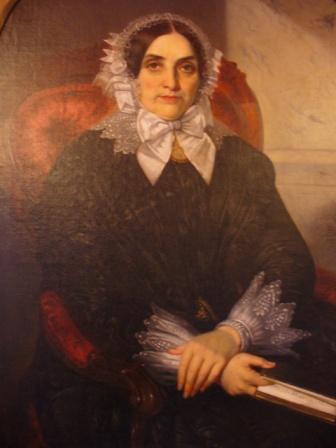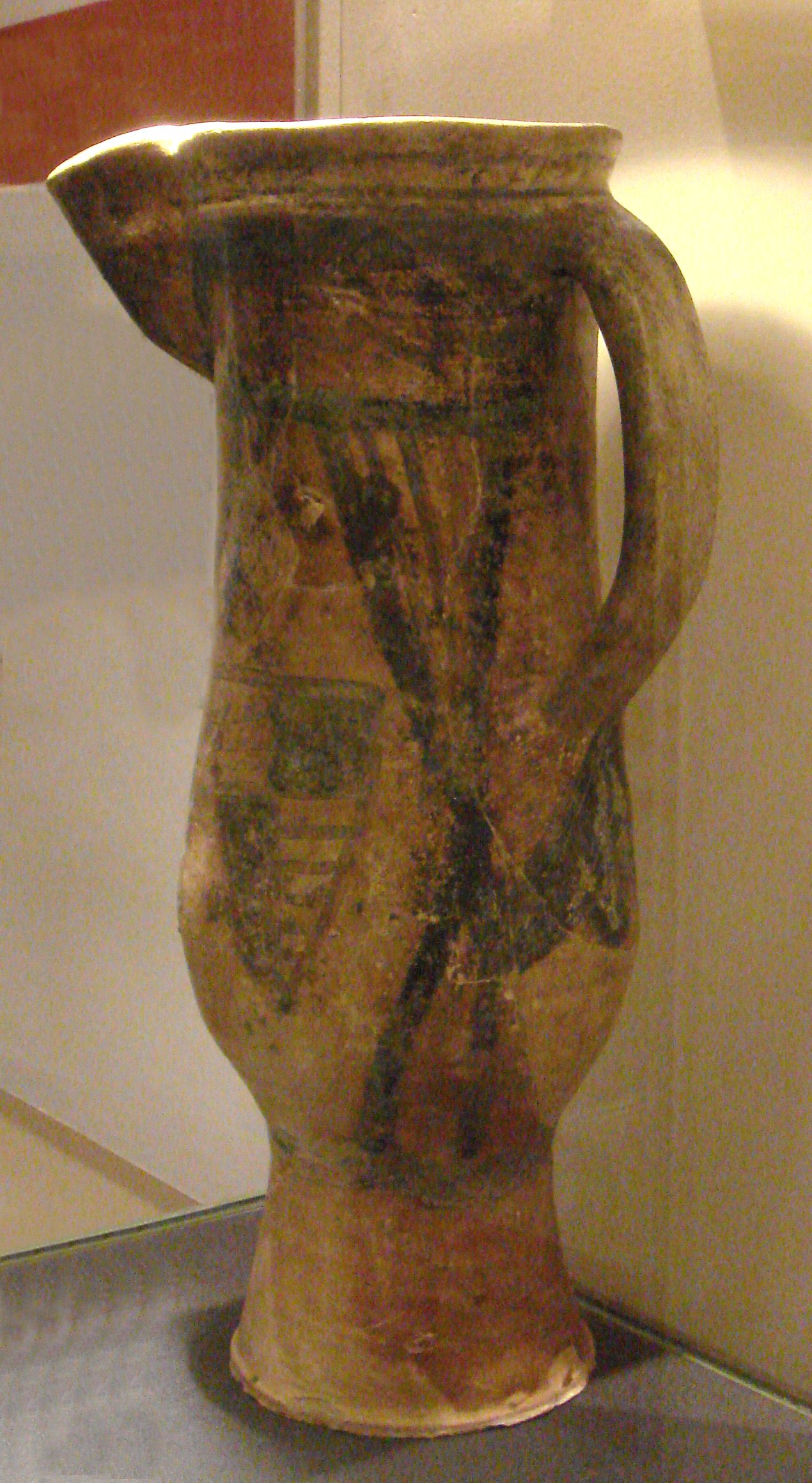|
Garneau (surname)
Origin The Garneau family originally derived its surname from the seigneury of Garneau in the region of Poitou. In France, hereditary surnames were adopted according to fairly general rules and during the late Middle Ages, names that were derived from localities became increasingly widespread. Local names often denoted the proprietorship of a village or estate; in other instances they indicated where a person had moved from. The surname Garneau was first found in Poitou where they held a family seat in the honor of the seigneury of Garneau in the region of Saintonge in the diocese of Saintes in the parliament of Bordeaux. ''Spelling variations include:'' Garnaud, Garnault, Garneau, Garneault, Garineau, Garinaud, Garino, Garinois, Garinot, Garnot, Garnoux, Le Garnaud, Legarnaud, Le Garnault, Legarnault, Le Garneau and many more. Notable People * Chris Garneau, American singer-songwriter *Dustin Garneau (born 1987), American baseball player * Francois Xavier Garneau, (1809–66) F ... [...More Info...] [...Related Items...] OR: [Wikipedia] [Google] [Baidu] |
Poitou
Poitou (, , ; ; Poitevin: ''Poetou'') was a province of west-central France whose capital city was Poitiers. Both Poitou and Poitiers are named after the Pictones Gallic tribe. Geography The main historical cities are Poitiers (historical capital city), Châtellerault (France's kings' establishment in Poitou), Niort, La Roche-sur-Yon, Thouars, and Parthenay. History A marshland called the Poitevin Marsh (French ''Marais Poitevin'') is located along the Gulf of Poitou, on the west coast of France, just north of La Rochelle and west of Niort. At the conclusion of the Battle of Taillebourg in the Saintonge War, which was decisively won by the French, King Henry III of England recognized his loss of continental Plantagenet territory to France. This was ratified by the Treaty of Paris of 1259, by which King Louis annexed Normandy, Maine, Anjou, and Poitou). During the late sixteenth and early seventeenth centuries, Poitou was a hotbed of Huguenot (French Calvinist Protestan ... [...More Info...] [...Related Items...] OR: [Wikipedia] [Google] [Baidu] |
Late Middle Ages
The Late Middle Ages or Late Medieval Period was the Periodization, period of European history lasting from AD 1300 to 1500. The Late Middle Ages followed the High Middle Ages and preceded the onset of the early modern period (and in much of Europe, the Renaissance). Around 1300, centuries of prosperity and growth in Europe came to a halt. A series of famines and Plague (disease), plagues, including the Great Famine of 1315–1317 and the Black Death, reduced the population to around half of what it had been before the calamities. Along with depopulation came social unrest and endemic warfare. France and England experienced serious peasant uprisings, such as the Jacquerie and the Peasants' Revolt, as well as over a century of intermittent conflict, the Hundred Years' War. To add to the many problems of the period, the unity of the Catholic Church was temporarily shattered by the Western Schism. Collectively, those events are sometimes called the Crisis of the Late Middle Ages. D ... [...More Info...] [...Related Items...] OR: [Wikipedia] [Google] [Baidu] |
Seigneury
''Seigneur'' is an originally feudal title in France before the Revolution, in New France and British North America until 1854, and in the Channel Islands to this day. A seigneur refers to the person or collective who owned a ''seigneurie'' (or ''seigneury'')—a form of land tenure—as a fief, with its associated rights over person and property. A seigneur could be an individual—male or female (''seigneuresse''), noble or non-noble (''roturier'')—or a collective entity such a religious community, monastery, seminary, college, or parish. This form of lordship was called ''seigneurie'', the rights that the seigneur was entitled to were called ''seigneuriage'', and the jurisdiction exercised was ''seigneur justicier'' over his fief. In the wake of the French Revolution, seigneurialism was repealed in France on 4 August 1789 and in the Province of Canada on 18 December 1854. Since then, the feudal title has only been applicable in the Channel Islands and for sovereign princ ... [...More Info...] [...Related Items...] OR: [Wikipedia] [Google] [Baidu] |
Saintonge (region)
Saintonge (), historically spelled Xaintonge and Xainctonge, is a region of France located on the west central Atlantic coast, corresponding with the former province of the same name. The largest city is Saintes (Xaintes, Xainctes). Other principal towns include Saint-Jean-d'Angély, Jonzac, Frontenay-Rohan-Rohan, Royan, Marennes, Pons, and Barbezieux-Saint-Hilaire. In 1790, during the French Revolution, Saintonge became part of Charente-Inférieure, one of the 83 departments organized by the new government. This was renamed as Charente-Maritime in 1941, during World War II. The region is known for its Romanesque churches. See Saintonge Romane (Éditions Zodiaque) - 'sa richesse en monuments l'emporte sur tout autre', p.7 History The region derives its name from the ''Santones'', an ancient Gallic tribe that once inhabited the area. They were one of the numerous Celtic peoples in Europe before the rise of the Roman Empire. During antiquity, Saintonge was part of the ... [...More Info...] [...Related Items...] OR: [Wikipedia] [Google] [Baidu] |
Diocese Of Saintes
In church governance, a diocese or bishopric is the ecclesiastical district under the jurisdiction of a bishop. History In the later organization of the Roman Empire, the increasingly subdivided provinces were administratively associated in a larger unit, the diocese (Latin ''dioecesis'', from the Greek term διοίκησις, meaning "administration"). Christianity was given legal status in 313 with the Edict of Milan. Churches began to organize themselves into dioceses based on the civil dioceses, not on the larger regional imperial districts. These dioceses were often smaller than the provinces. Christianity was declared the Empire's official religion by Theodosius I in 380. Constantine I in 318 gave litigants the right to have court cases transferred from the civil courts to the bishops. This situation must have hardly survived Julian, 361–363. Episcopal courts are not heard of again in the East until 398 and in the West in 408. The quality of these courts w ... [...More Info...] [...Related Items...] OR: [Wikipedia] [Google] [Baidu] |
Parliament Of Bordeaux
A ''parlement'' (), under the French Ancien Régime, was a provincial appellate court of the Kingdom of France. In 1789, France had 13 parlements, the oldest and most important of which was the Parlement of Paris. While both the modern French term ''parlement'' (for the legislature) and the English word ''parliament'' derive from this French term, the Ancien Régime parlements were not legislative bodies and the modern and ancient terminology are not interchangeable. History Parlements were judicial organizations consisting of a dozen or more appellate judges, or about 1,100 judges nationwide. They were the courts of final appeal of the judicial system, and typically wielded power over a wide range of subjects, particularly taxation. Laws and edicts issued by the Crown were not official in their respective jurisdictions until the parlements gave their assent by publishing them. The members of the parlements were aristocrats, called nobles of the robe, who had bought or inhe ... [...More Info...] [...Related Items...] OR: [Wikipedia] [Google] [Baidu] |
Chris Garneau
Chris Garneau (born November 5, 1982) is an American singer-songwriter and musician. Since releasing his debut album, '' Music for Tourists'', Garneau has toured throughout the United States, Canada, Brazil, Europe, and Asia. Garneau cites Jeff Buckley, Nina Simone, Nico, and Chan Marshall as influences. He currently resides in Los Angeles, California. His second full-length album, titled '' El Radio'' was released July 7, 2009, and his third full-length album, ''Winter Games'', was released in 2013. His fourth studio album, ''Yours'', was released in December 2018. Early life Garneau, a native of Boston, lived with his family in Paris during grade school, and later New Jersey before moving to New York City. Garneau discovered a love of music at a young age while learning to play piano. After high school, Garneau briefly attended Berklee College of Music in Boston, but left after completing one term and moved to Brooklyn. There he began writing music and playing live shows at sm ... [...More Info...] [...Related Items...] OR: [Wikipedia] [Google] [Baidu] |
Dustin Garneau
Dustin Thomas Garneau (born August 13, 1987) is an American former professional baseball catcher. He played in Major League Baseball (MLB) for the Colorado Rockies, Oakland Athletics, Chicago White Sox, Los Angeles Angels, Houston Astros and Detroit Tigers. Career Amateur career Garneau attended San Pedro High School in San Pedro, California. He enrolled at California State University, Fullerton to play college baseball for the Cal State Fullerton Titans. Colorado Rockies The Colorado Rockies selected Garneau in the 19th round of the 2009 Major League Baseball draft. Garneau made his professional debut with the rookie-level Casper Ghosts, hitting .250 in 23 games. In 2010, Garneau split the season between the Low-A Tri-City Dust Devils and the High-A Modesto Nuts, batting .243/.346/.405 with 3 home runs and 34 RBI between the two teams. In 2011, he played for the Single-A Asheville Tourists, slashing .255/.370/.513 with career-highs in home runs (17) and RBI (67) in 100 gam ... [...More Info...] [...Related Items...] OR: [Wikipedia] [Google] [Baidu] |
Marc Garneau
Joseph Jean-Pierre Marc Garneau (born February 23, 1949) is a Canadian politician, retired Royal Canadian Navy officer and former astronaut who served as a Cabinet minister from 2015 to 2021. A member of the Liberal Party of Canada, Liberal Party, Garneau was the Minister of Foreign Affairs (Canada), minister of foreign affairs from January to October 2021 and Minister of Transport (Canada), minister of transport from November 2015 to January 2021. He is the Member of Parliament (Canada), Member of Parliament (MP) for Notre-Dame-de-Grâce—Westmount. Prior to entering politics, Garneau served as a naval officer and was selected as an astronaut, part of the 1983 NRC Group. On October 5, 1984, he became the first Canadian in outer space as part of STS-41-G and served on two subsequent Space Shuttle missions—STS-77 and STS-97. Personal life Joseph Jean-Pierre Marc Garneau was born on February 23, 1949, in Quebec City, Quebec, Canada. He attended primary and secondary schools i ... [...More Info...] [...Related Items...] OR: [Wikipedia] [Google] [Baidu] |
Louis Garneau
Louis Garneau (born August 9, 1958 in Sainte-Foy, Quebec, Canada) is a retired competitive cyclist, artist, and businessman of French-Canadian descent. In 1978, Garneau was the Canadian champion in individual pursuit cycling. In 1983, he founded Louis Garneau Sports, which sells cycling clothing and accessories. Early years Garneau was born in Sainte-Foy, Quebec on August 9, 1958, the son of Paul Garneau and Jeannine Lehoux. He obtained his bachelor's degree in visual arts from Laval University and won an excellence scholarship there in 1983. From 1970 to 1983, Garneau was an international cyclist and won the title of Canadian champion in individual pursuit in 1978. He was selected to participate in the 1980 Moscow Olympics, but could not participate due to the boycott of these games by Canada. After taking part in the 1984 Los Angeles Olympics, he retired from competition. Business career In 1983, Garneau began making clothing for cyclists in his father's garage, sup ... [...More Info...] [...Related Items...] OR: [Wikipedia] [Google] [Baidu] |




